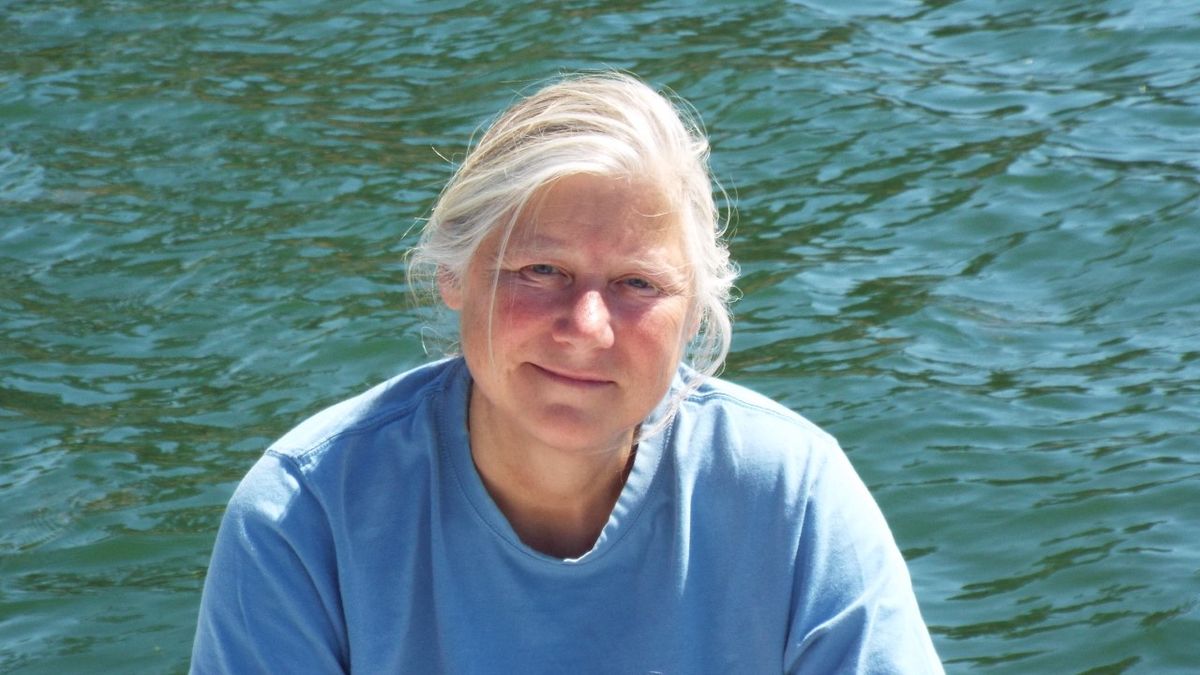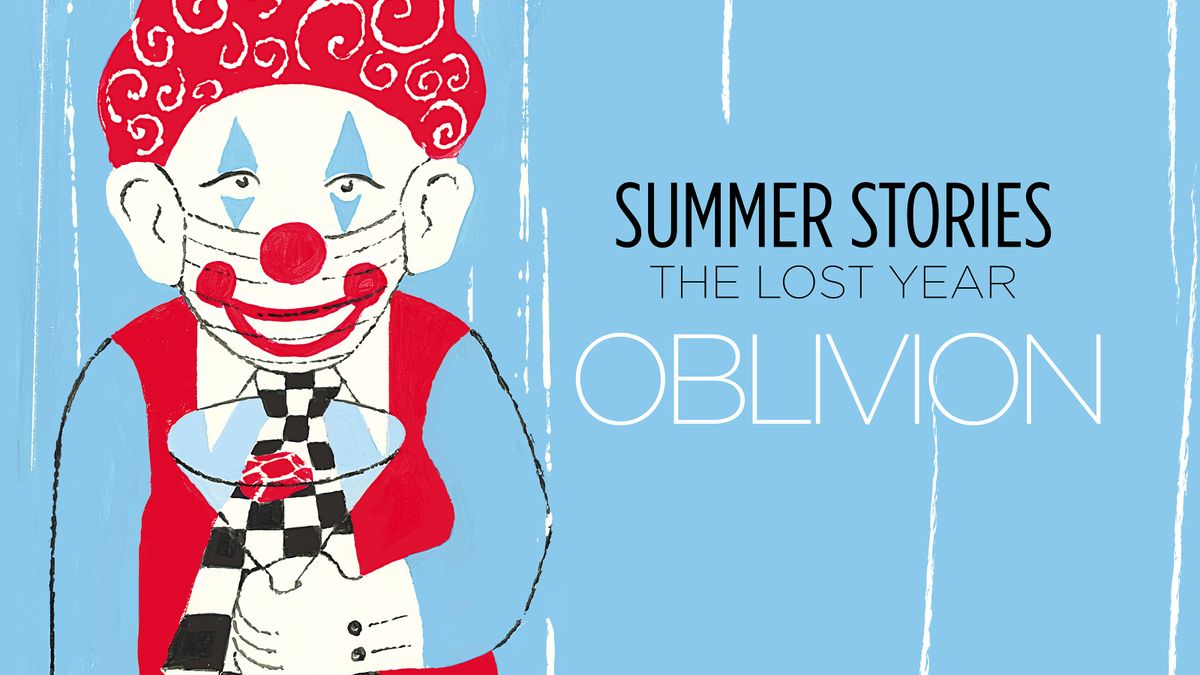Summer Stories: The Lost Year - ‘Oblivion’ by Polly Buckingham
Polly Buckingham’s books include “The Expense of a View” and “A Year of Silence.” Her work has appeared in numerous literary journals. She teaches creative writing at Eastern Washington University and is the editor of Willow Springs magazine.
When her daughter comes in wearing a mask, Margery thinks she’s dreaming. She thinks this isn’t the real world. The ghosts in the walls knock. The cockroaches fall out of the cupboards.
“Listen, Dad. I really need you to come with us to the new house. It’s so big – you wouldn’t believe it – everyone can have their own space. We’re even having an air scrubber installed.”
“I can’t,” Frank says. “I won’t. Margery doesn’t want to leave here, do you, love?”
Margery shakes her head slowly. Don’t leave us, Margie, the ghosts say. She pulls out a china teacup with a cockroach in it. She smiles down at it. It waves at her.
The person in the apartment next door falls into another coughing fit.
“That’s not fair, playing Mom that way.”
“What even is an air scrubber?” he asks.
Margery sits beside Frank on the flowered sofa with the cup. “Fred,” she says.
“Hello, Fred,” Frank says.
“What’s that, Mom?” her daughter asks.
“Fred doesn’t want us to leave.”
Something next door sounds like a sputtering engine, like gunshots. She squeezes Frank’s arm.
“Well, Mom, I don’t know who Fred is, but maybe he can come with us.”
Margery waves at Fred. He’s so still in the center of the cup, he might be dead. At least he is not wearing a mask.
Margery and Frank walk down Main Street toward the lake. A woman comes out of the pharmacy wearing a mask. Through the hardware store window, the slow man with the droopy eyes and the drunken man with the broken arteries on his nose are wearing masks. So no one will see the drunk’s broken arteries or the slow man’s hanging mouth, she thinks to calm herself, to make herself laugh, but it’s not funny. She squeezes Frank’s arm. “Am I still sleeping?”
“You’re awake, darling.”
The clown is wearing a mask to help Margery get used to it. Margery’s heart is a cupboard in which the cups and saucers move about and switch places. It is the bare branches outside the kitchen window. She loves the clown. And especially she loves Frank. A crow hops along the sidewalk ahead of them. Small snow falls. It gathers on Frank’s shoulders, clings to the wool of his checkered coat.
“Can the clown come with us when we go?”
Frank stops and turns toward her, gives her one of his Frank love stares. “Of course,” he says.
She wipes the snow from one shoulder. “I want to see how much more will fall on the other,” she says. Frank will not say what he’s thinking, but she knows. Yes, she has decided she will go. They will go.
Margery and Frank. Martinis and ruby earrings. The clown mistook them for pomegranates. On the way to the ball, Margery wept.
“I hope that clown doesn’t come with us. He’s as bad as the mice.”
“You love the clown, darling. Remember how you love him?”
“It’s your bear face I love.”
The clown stops on the sidewalk, one foot hovering over a crack.
“Go ahead and step on it!” Margery yells. “You ruby-eating lunk!”
But the clown’s face is the face of a sad dog.
Marjorie’s heart is an oil tank in a backyard filled with knapweed. Rusted in spots. The broken bolts ache. “I’m sorry, clown.” She loves the clown and his wide checkered tie.
“Will the birds in the lilac bush move with us?”
“Probably they’ll stay here.”
“You’re honest, Frank. I’ve always appreciated that.”
“There will be other birds.”
“There will be hook heads, Frank.”
“Yes, love, and swans, I’m told.”
“Swans are ephemeral. And they spit and fight.”
“Will the birds come with us, Frank? The ones in the lilac bush? The ones that clatter outside the window?” Her heart would be empty without the inscrutable birds – their commotion of wings and bickering and soliloquys and sounds like children playing in the dimming night. Her heart is a cupboard with the door swung open. Where birds erupt.
There is a bird on the martini glass.
“There will be other birds, love, birds you’ve never seen with stories you can’t know yet.”
“Will there be swans, Frank?”
“I’m told so,” Frank says.
“And the quail with the funny hooks that shake like the fingers of angry teachers?”
Frank stops and she stops, and they face each other, and she falls into his appreciative face, into his bear face, into the oblivion of his love, which holds her like a fog. She cannot imagine not knowing him. She cannot imagine. Not yet. Not knowing him. Won’t she always see that honey bear? That slack black bear happiness? That quiet amble of an expression? Her Frank.
Margery scrubs the tea kettle until she sees the reflections of the ghosts moving across it. The black rises in waves from the bottom like ink she can’t get loose. The ghosts hold their broken teacups. Her tea tastes like a martini with too much olive juice. “You’ve made this too dirty, Frankie.” And then it’s tea again, warm inside her, green inside her, smoky-flavored, the snowflakes against the window balls of silence like the love silence between her and Frank. Glittering like the old rainwater that poured from the lightening tree and lit up the sap as the sun hit the heartwood.
A child screams in the distance, a single bird mimics the scream, and then all the birds are screaming. Did a child ever scream? The birds scream and trill and clatter, and then they are all suddenly quiet. Another cry, perhaps a coyote, a mimic bird, an ambulance, many screams and cries. All from the bird tree. Where is the bird tree? Is it a dream?
“Frank, will I still dream at the new house?”
“Oh, love, nothing could ever stop you from dreaming.”
“Did I tell you my dream this morning?”
“Tell tell.”
“It is about the bird tree.”
The clown is behind them, walking a big shaggy dog, correcting the dog, training the dog. “Sit,” the clown says. The lake blazes with sunlight.
“I don’t remember anything else.”
“I dreamed about my mother,” Frank says. “She was washing dishes, and a plate broke on the floor. I was sitting cross-legged on the linoleum, which was blue, eating a sandwich.”
“What kind of sandwich?”
Frank stops, looks thoughtful, like a thoughtful lake or a college philosophy professor or a holy man. “Well, I guess I don’t remember,” he says and laughs his light Frank laugh – lightly astounded, slightly amused, always never forgetting the ridiculousness of the world.
“Sit,” the clown says. Margery turns back. The dog, full of attention, stares up at him, expectant, pleased with himself, thwopping his big furry tail against the asphalt of the lake path.
“Frank. What if you weren’t here?”
“Sit,” the clown says. “Goddamnit, sit!”
A door opens in the lake, a door inside of her filled with water. The fish gasp ahead of the wave that plows through the door.
“Alive or not, Margie, I will always be with you.”
The lake is blue as a fish scale, blue as a blue crab claw.
“You know, Frank,” Marjorie says, the clown’s shadow stretching across the pavement into her shadow. “I’ve loved other men besides you.”
“I know, love.”
“John is such a dull name. He must have been a dull man.”
The air is misty and bright with sun and the smallest swirling of dust-sized snowflakes. It cannot decide. Who is that clown unzipping his coat? She cannot decide anything.
“Of course, you were always the best one. Always are. Always will be.”
“No, love. You are the best one,” Frank says. “Always were, always will be.”
A little masked family walks by, the girl holding her father’s hand, staring at the ground, the boy fiddling with his mask. Everyone looks sad. She turns back. The clown pulls down his mask and grins at her with his big red mouth.
This bird tree she calls the murder tree. Frank has cut and placed lilacs in a jar beside the window so it will smell like home. But it is not home. Hook heads dart across the basalt. The birds in the tree are screaming. She cannot tell if they are joyous screams or terror screams. She cannot tell if they are children or birds or ambulances. “Frank,” she whispers because she cannot remember if she’s already called his name. Her daughter tells her she repeats herself. Her daughter is upstairs sleeping. Everyone has their own space. She does not want to wake her daughter. She does not want to see her daughter wearing the mask. She does not want her own space. “Frank,” she whispers because she can’t remember if she’s already called his name. “Frank?”

